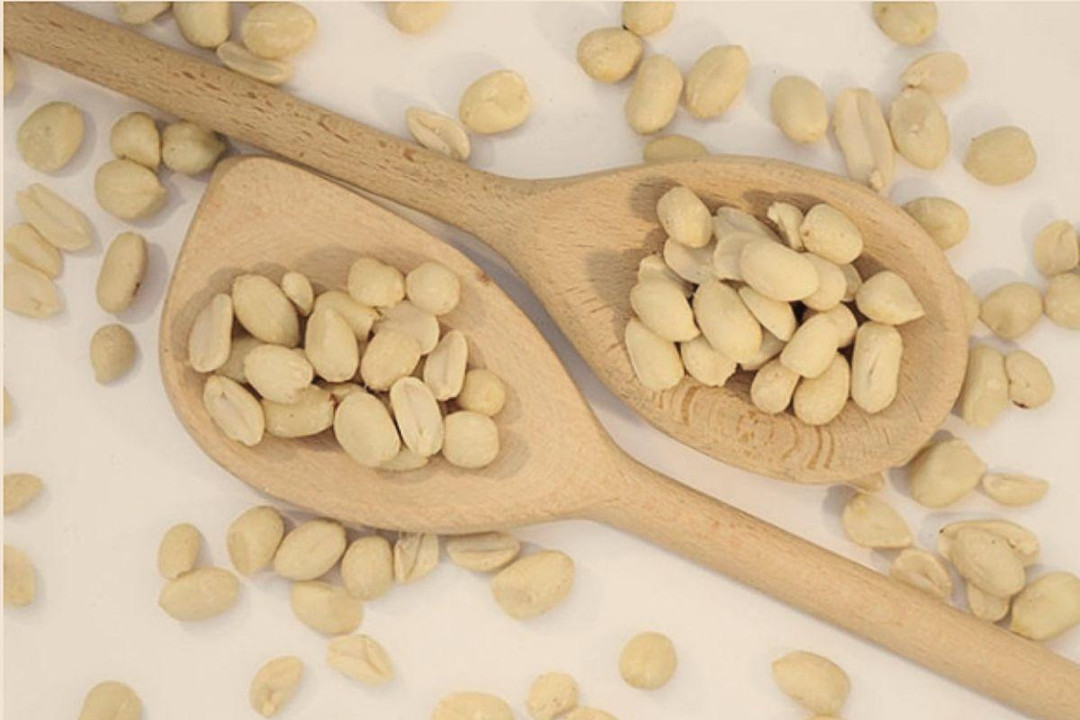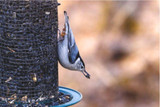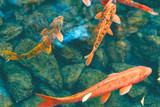The Ultimate Guide to Feeding Peanuts to Birds: Benefits and Considerations
Feeding Peanuts to birds is a common practice due to their high nutritious value. Being an excellent natural food source, they contribute to birds' well-being and vitality while enabling them to endure long migrations during the cold weather. However, if you are struggling with the main question of how to feed peanuts to birds, then this guide will assist you by revealing the benefits, type of peanut assortments, considerations, and other factors.
So, keep reading to know more!
Types of Peanuts Assortments
Premium Blanched Peanuts
The blanching process of these premuim peanuts removes the outer skin of the peanuts, which eliminates the risk of choking hazards. Apart from this, it also removes debris or dirt, making it a safer choice for the birds.
Fruit and Nut Mix
The Aflatoxin-Free peanuts include a blend of dried fruits and Nut Mix, which are suitable for various bird species, including parrots, nuthatches, starlings, blue tits, and great spotted woodpeckers.
Roasted Peanut Chips
The roasted peanut chips are chopped into tiny pieces that prevent small birds from choking. Best for summer feeding, these are easily digestible and rich in protein, oil, nutrients, etc. The roasting process for these peanuts intensifies its aroma, which lures more birds to your feeders.
Walnut Kernels for Birds & Small Animals
The high fat and protein content of these walnut kernels can cater to the dietary needs of various birds and small animals. They also contain Omega-6 and Omega-3 fatty acids, which are beneficial for birds' immune system, vision, and cognitive function.
Hazelnut Kernels
Highly suitable for small birds, these wild hazelnut kernels are packed with healthy fats that boost their energy. They also include minerals like manganese, thiamine, and vitamin E that positively impact the overall health of these birds.
Peanuts in Shell
Monkey nuts or peanuts in shells provide a natural foraging experience for birds which keeps them mentally stimulated. These shells may be beneficial for slowing down the spoilage and attracting birds like woodpeckers, jays, and nuthatches.
Blanched Peanut Granules
The texture of these split-blanched peanuts can stimulate the feeding experience of the birds without creating any mess around your feeder. They are easily digestible, especially for small birds like finches, chickadees and many others who can enjoy consuming them.
Classic Split Peanuts For Birds
The pale-skinned or red classic split peanuts are rich in essential oils, which can be used throughout the year to feed birds. These peanuts are liked by various bird species as they do not get spoiled easily.
Benefits of Feeding Peanuts to Birds
The Benefits of feeding peanuts to birds are mentioned below:
- Peanuts can lure in various bird species like nuthatches, jays, chickadees, woodpeckers, blue jays, etc. These peanuts can be used for year-round feeding.
- Encourages natural foraging behaviour among the birds while providing them supplemental nourishment.
- Promotes healthy feather growth as peanuts are a good source of vitamin B, i.e. biotin.
- Ensures the healthy immune system of birds as peanuts contain antioxidants. Thus resisting any diseases or parasites.
Considerations Regarding Feeding Peanuts to Birds
Accurate quantity of peanuts
Providing an accurate amount of peanuts is necessary, which can be based on the types of birds or how often they visit. The nutritional needs of specific birds must also be kept in mind while feeding peanuts. For instance, small birds should be fed smaller portions as compared to the other birds. There are the following considerations that you can keep in mind while feeding the birds:
- You must observe how quickly and in what quantity the birds are consuming the peanuts. This means that if some peanuts are left uneaten, then you need to reduce the quantity.
- Continuously monitor the health of birds, i.e. if you notice any signs of illness, then you can decrease the quantity.
Feeder selection
You must keep in mind the following bird or peanut feeders and the consideration regarding their design:
- Suet and peanut Feeders: Designed to hold birds and peanuts, the feeders made from wood or wire can be an ideal choice.
- Squirrel-proof Feeders: This type of feeder restricts squirrels' access to bird seeds and peanuts. For this, there are protective cages or another technique of putting a certain weight to close off the access.
- Platform Feeders: The tray or platform feeders provide a flat surface where the birds can easily land and eat the peanuts. These are very versatile in nature, but you must protect them from rain or snow.
- Peckish everyday feeder: The everyday feeder includes a slanted bottom that provides easy access to peanuts and is easy to clean. For this design, you must check the opening size to examine whether it can accommodate the type of peanut that you have.
- Heritage peanut Feeder: This feeder is made from durable aluminum, weather-resistant, and hard-wearing material with a removable base. These are easy to clean, but you must take their placement into consideration. You can hang them in a sheltered location to avoid direct sunlight.
- Steel Feeder: The steel feeder has a quick-release top and base, which can be easily filled or cleaned due to the antibacterial coating. You must consider that it should be of the right size and have enough capacity for the birds you usually feed.
- Ring Pull Peanut Feeder: This feeder design is built for securely feeding peanuts to birds as it includes a twist-off base that dispenses small amounts, which prevents birds from overheating.
Water availability
Like humans, Water is very crucial for birds as well. Consider putting a bowl of water, especially when feeding them peanuts, for better digestion and regulating the body temperature.
Seasonal feeding
Peanuts can be a valuable source of energy for birds, but you must focus on the following considerations based on the seasons:
- Winter Season: Peanuts can help raise the fat content in birds, which may help them survive harsh conditions.
- Summer season: There is a constant risk of spoilage or quality reduction in nthe summer season, so you must change the leftover peanuts regularly.
Conclusion
Peanuts for birds, roughly made from 45% fat and 24% protein, can be an ideal choice for protecting their blood vessels. Some birds, like chickadees and nuthatches, use these peanuts as a nesting material while improving their mental stimulations. Thus making peanuts a popular choice for birds.
Explore Popular Articles
-
How Sunflower Seeds Can Improve Your Bird's Health
14th Jun 2024Birds are quite attracted towards sunflower seeds, but have you ever wondered about sunflower seeds&
-
The Ultimate Guide to Feeding Peanuts to Birds: Benefits and Considerations
16th May 2024Feeding Peanuts to birds is a common practice due to their high nutritious value. Being an excellent
-
Signs of Overfeeding Fish: How to Spot and Prevent it
7th May 2024Do you know that fish are more likely to die from overfeeding than starvation? One of the mos




